Contents
What Is ADHD?
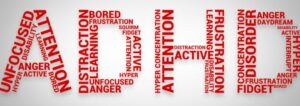
ADHD is a neurodevelopmental disorder characterized by an inability to focus on tasks, impulsiveness, and hyperactivity. Children with ADHD may also have trouble paying attention in class, interrupting others in conversations, or acting without thinking. They also often fight against instructions they find uninteresting or repetitive. If you know someone who may be suffering from ADHD, here are some signs to look for.
ADHD affects about 6.4 million children. The most common symptoms of ADHD are hyperactivity, impulsiveness, disorganization, and distractibility. Healthcare organizations describe ADHD as a persistent pattern of inattention and/or hyperactivity-impulsivity that interferes with functioning or development, more than it would be expected for one’s age.
ADHD is considered a worldwide disorder and affects all ethnicities and social classes. ADHD may be genetic for between 60% and 80% of the people who have it. It is not clear how many children will outgrow their symptoms versus those that will continue to suffer from ADHD up into adulthood. Children with ADHD are more likely than others to become adults struggling with substance abuse, anxiety, and depression.
Although ADHD can affect individuals of all ages, it is found to be most prevalent among the age group of 18-44 years old. Boys are three times more likely to be diagnosed with ADHD than girls However, girls are often underdiagnosed and undertreated for ADHD. Women with ADHD often have more severe symptoms of inattention. Females are also at a higher risk for developing anxiety disorders, eating disorders, depression, or substance abuse compared to males.
ADHD In Children
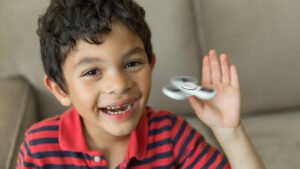 ADHD in children is when a young person has trouble with paying attention, staying focused on certain tasks and controlling impulsive behavior. It’s the most commonly diagnosed mental disorder of children today. Kids with ADHD may act without thinking about what they’re doing first. They also have problems listening to instructions and following through on certain things they’re told to do by adults.
ADHD in children is when a young person has trouble with paying attention, staying focused on certain tasks and controlling impulsive behavior. It’s the most commonly diagnosed mental disorder of children today. Kids with ADHD may act without thinking about what they’re doing first. They also have problems listening to instructions and following through on certain things they’re told to do by adults.
The symptoms of ADHD are often mild but sometimes parents take notice that something isn’t totally normal with their child’s behavior. Some common signs of ADHD include failing or having difficulty focusing, making careless mistakes or not paying attention to the details, difficulty organizing tasks or activities, becoming bored with a task after only a few minutes, leaving projects without completion, not listening to instructions carefully and having trouble taking them in, speaking excessively. Even when it’s inappropriate, fidgeting with hands or feet when sitting still is expected, being easily distracted by outside stimuli. There are different types of ADHD which include inattentive type, hyperactive-impulsive type, and combined type.
If you have ever seen an ADHD child in action it can be hard to look past the bad behavior that they display. But doctors say that there are major differences in brain functions of these children that lead to their symptoms. People with ADHD have trouble staying focused on tasks, controlling their behavior, and being able to follow directions. ADHD is a disorder that can be difficult to manage in children. Because they have trouble focusing on certain things and it’s hard to get them to work together with adults.
Symptoms of ADHD In Children
ADHD means that the children have a hard time paying attention, controlling their behavior, or being patient. They may be more active than most kids and not want to do what their parents tell them. The symptoms of ADHD in children can sometimes run in families. This means that if one of the parents has ADHD, there is a good chance their kid might have it too. But it’s not always this way. Doctors aren’t sure why some children get ADHD and others don’t if their parents have it or not though. The symptoms of ADHD in children are not just caused by bad behavior. They really do have trouble doing certain things because of differences in their brains.
The symptoms of ADHD in children can be like this:
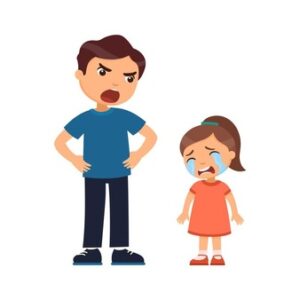
- They are messy.
- They forget things, like their homework or do chores.
- Their parents have to ask them several times before they clean up their room.
- They get distracted when doing their school work and make more mistakes than others.
- It’s hard for them to play quietly.
Symptoms of ADHD in children are not just caused by bad behavior. They really do have trouble doing certain things because of differences in their brains, but it can be hard to figure out what treatment would work best for them. This disorder affects boys more than girls and it’s common that ADHD sufferers continue to show the symptoms when they’re grown up too.
How Does ADHD Affect The Brain?
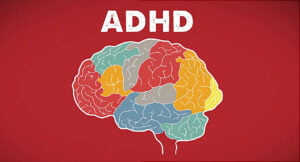
ADHD means that a child has a harder time focusing, controlling his behavior, or being patient than most kids his age. When he has a job to do, he may not want to listen and will start playing around instead of finishing what he started. He gets distracted from whatever he’s doing by other things. There can be many reasons why children have ADHD. But it has something to do with the brain and how the messages go through it. It’s not their fault that they act like this, even though sometimes it may seem that way.
ADHD affects boys more than girls. Most kids diagnosed with ADHD are ages 6-12 years, but people of all ages can have the disorder. Lots of adults who had ADHD as a child often still have some symptoms when they’re grown up too. Even if they didn’t get treatment for it when they were younger.
Scientists don’t yet know the exact causes of ADHD, but there are some good theories. For example, one is that children with ADHD have brains that work differently than kids who don’t have it. Another theory is that kids with ADHD might not get enough of certain chemicals in their bodies which help them stay focused and control their behavior or moods. These chemicals are called neurotransmitters. A third possible cause is that something happened to a child when he was younger to hurt his brain development, like suffering an injury during birth or continuing to be exposed to high levels of lead (a metal in the environment). It isn’t known for sure if these things actually can cause ADHD though.
Causes of ADHD
There are many assumptions about the cause of ADHD. One assumption is that it may have to do with how a person’s brain works, especially in the areas of attention and impulse control. Another theory includes the neurotransmitters in ADHD children. Most people believe that ADHD is caused by one or more factors but scientists haven’t pinpointed what causes it yet.
Risk Factors That Contribute To ADHD
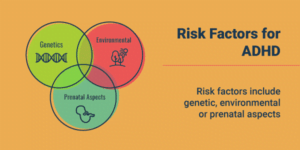 There are various factors that scientists believe contribute to the disorder like neurotransmitters in the brain or genetics. Scientists continue doing studies about what causes ADHD but there isn’t enough evidence yet to say what exactly triggers it. Kids who have this disorder find it really hard to focus. Especially when they’re asked to sit down and do something for a long period of time like listening to school or completing homework assignments. They also struggle following instructions and behave inappropriately sometimes even though want to be good kids deep inside. Kids with ADHD tend to be more hyperactive especially when they’re in a setting that doesn’t deliver much stimulation or attention from those around them. They may also have problems communicating their needs and wants which can make it hard for people to understand them. But it’s important to try your best.
There are various factors that scientists believe contribute to the disorder like neurotransmitters in the brain or genetics. Scientists continue doing studies about what causes ADHD but there isn’t enough evidence yet to say what exactly triggers it. Kids who have this disorder find it really hard to focus. Especially when they’re asked to sit down and do something for a long period of time like listening to school or completing homework assignments. They also struggle following instructions and behave inappropriately sometimes even though want to be good kids deep inside. Kids with ADHD tend to be more hyperactive especially when they’re in a setting that doesn’t deliver much stimulation or attention from those around them. They may also have problems communicating their needs and wants which can make it hard for people to understand them. But it’s important to try your best.
Resources For Parents On Managing Their Child’s Disorder

The first resource for managing ADHD is to help the child with things they are struggling with. For example, if your child can’t focus on a long task or pay attention in school, spend more time with them. So they can finish the task at hand. It’s also important to set up a calm and quiet place for your child to study and learn where there isn’t a lot of distractions like TV shows or video games playing. A good way of teaching ADHD children is to provide one-on-one instruction and not expect too much from them at once. It’s also important for parents to make sure they set clear limits and expectations for their children as well as stick to those words. Punishing your child shouldn’t happen every time they mess up because that doesn’t help them improve.
Parenting an ADHD child can be hard because they tend to have trouble focusing. That makes it hard for them to learn at school. But parents shouldn’t give up on their kids because of this disorder. Because there are lots of ways that children can learn and improve themselves as time passes by.
ADHD in children is a mental disorder that affects many people across the world. They have a hard time concentrating and acting appropriately in certain situations which makes it hard for them to communicate with other people. But there are lots of ways that kids can learn and improve their behavior as they grow older. The best thing parents can do is help their child through the disorder by providing one-on-one teaching, limiting distractions at home, and setting clear expectations. In doing so, children will be able to focus better on school work and become more adjusted adults who know how to behave properly when they’re around others.
Treatment for Children With ADHD

Although there isn’t yet a cure for ADHD, treatments are available to help with the symptoms. The best ways are either behavior therapy or stimulant medications (like Ritalin). A combination of both types of treatment may be the best option for some kids. Parents should take their child to see his doctor or other professionals who can figure out what kind of treatment would be best for him.
For a parent dealing with their child’s ADHD, it’s important to understand the symptoms and treatments. So you know how to handle the situation effectively. If you have questions or need someone to talk to about your worries. There are resources you can turn to like doctors or counselors for support. Treatments for ADHD involve either medication or therapy which can help with the symptoms individuals experience.
Doctors are cautious about what treatments to prescribe to ADHD children. Doctors don’t want to prescribe medication if they know that the child isn’t going to be compliant with the treatment. They also have to carefully decide whether they want to recommend behavior therapy or stimulant medications. Stimulant medications are made for use in children, but they are still drugs that have side effects. Doctors work really hard to find out which treatment is best for each child. That means it’s not easy for parents of ADHD children.
One type of stimulant medication used for ADHD is called Ritalin. It was developed some time ago and it can make a big difference in kids who have trouble staying focused, following directions, or behaving themselves. Parents should take their child to see a therapist or doctor who can administer tests to help them determine what treatment might work best for them.
Conclusion
ADHD is one of the most common childhood disorders today, affecting nearly 11% of all school-aged children. There are a variety of treatments that can help with ADHD symptoms including medication. And certain therapies like art or music therapy. Talk to your doctor before starting any treatment for this condition. If you do not want to take medications as part of your care plan.
For more information, please contact MantraCare. ADHD is a neurodevelopmental disorder characterized by difficulty in paying attention, hyperactivity, and impulsivity. If you have any queries regarding Online ADHD Counseling experienced therapists at MantraCare can help: Book a trial ADHD therapy session


